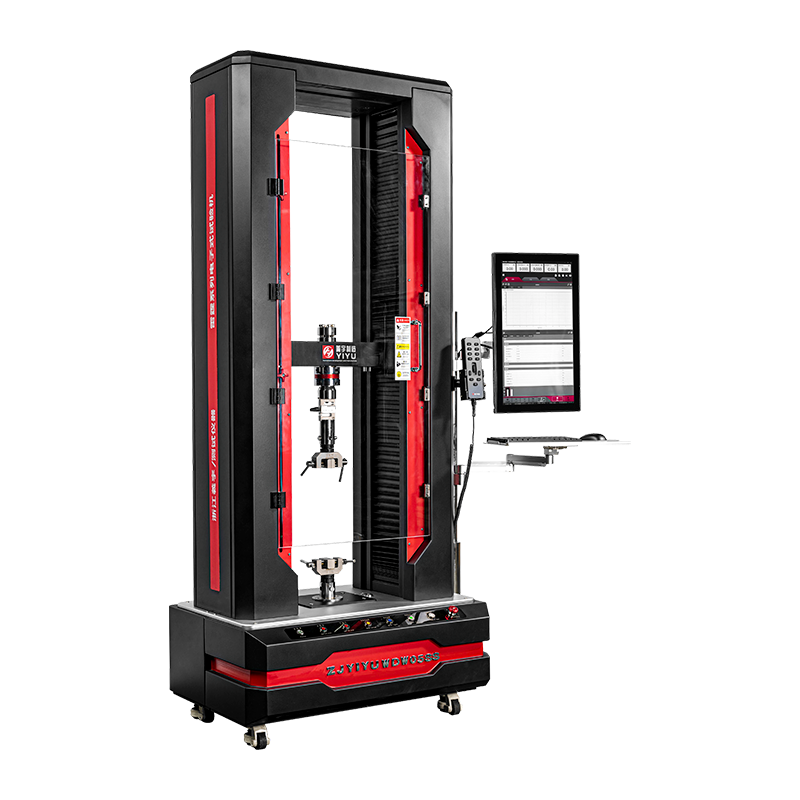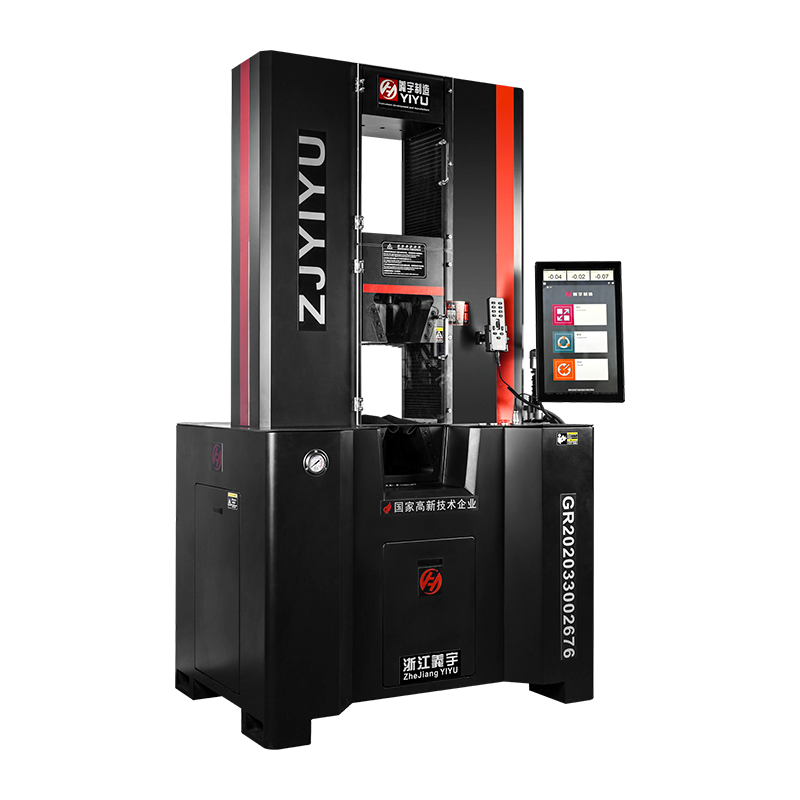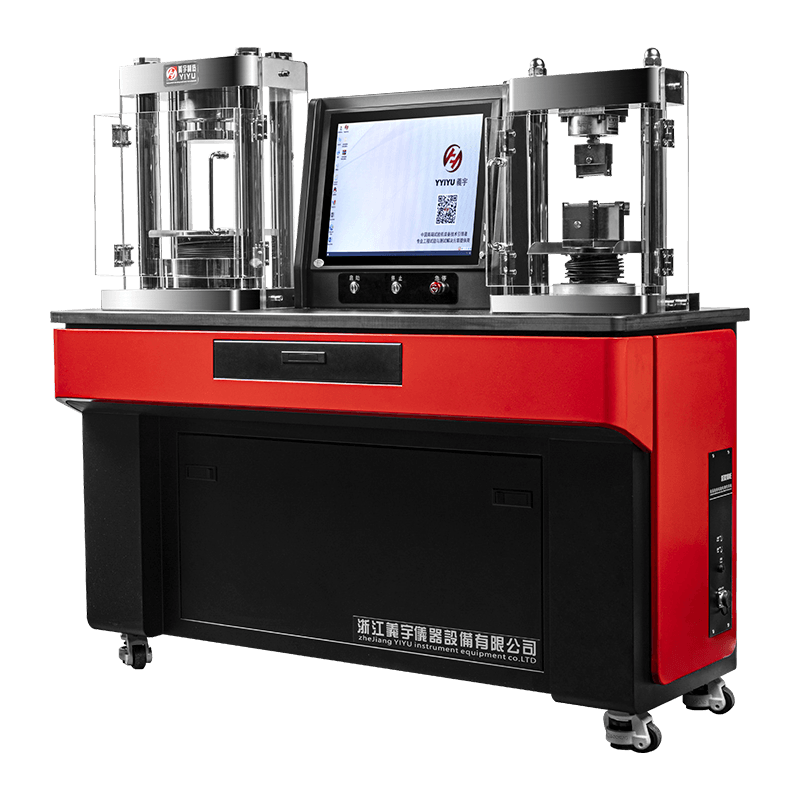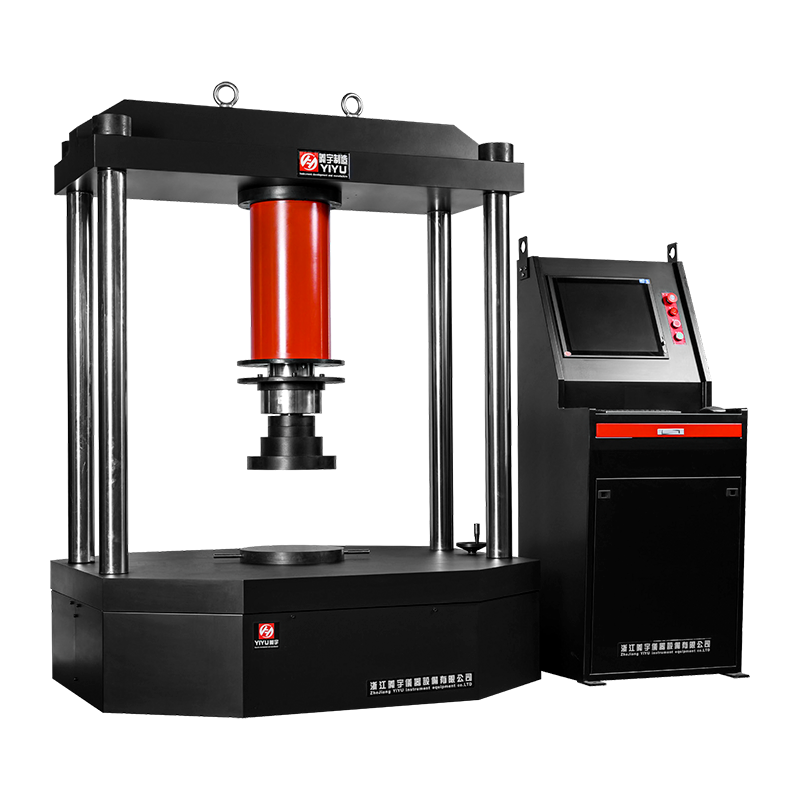In today's manufacturing and engineering industries, quality control has become a core component in ensuring product safety, reliability, and longevity. In particular, during the material production process, materials—whether metals, plastics, rubber, ceramics, or other composite materials—must undergo rigorous physical and mechanical testing to ensure they meet performance requirements. Universal testing machines, capable of simultaneously performing multiple mechanical tests, play a crucial role in quality control. They are widely used in various industries, including automotive, aerospace, electronics, construction, and metallurgy, helping manufacturers conduct precise material testing and analysis to ensure consistent product quality and production standards.
What is a universal testing machine?
A universal testing machine is a widely used device for materials testing, capable of measuring the performance of various materials under various mechanical forces, including tension, compression, bending, and shear. Using diverse testing methods and sophisticated sensors, it simulates the various stress conditions a material might encounter during actual use to obtain mechanical property data. Universal testing machine test results provide important scientific evidence for material properties such as strength, toughness, durability, and stability, providing engineers and manufacturers with critical information for optimizing designs and improving production quality.
Universal Testing Machine Applications in Quality Control
Ensuring the Quality of Raw Materials
In any production process, the quality of raw materials directly determines the quality of the final product. This is especially true in the production of basic materials such as metals, plastics, and rubber, which must undergo rigorous quality testing to ensure compliance with national standards and industry regulations. Universal testing machines can accurately measure the mechanical properties of raw materials through various tests, including tension, compression, and bending, to promptly identify potential quality issues.
For example, in the steel industry, raw material properties such as tensile strength, yield strength, and elongation are crucial indicators for ensuring product quality. By using universal testing machines for preliminary testing of raw materials, manufacturers can ensure that the steel used meets design requirements and avoid product failures due to material defects. Furthermore, non-metallic materials such as plastics and rubber must undergo similar mechanical property testing during processing to ensure their durability under specific loads.
Quality Monitoring During Product Production
During the production process, material properties may be affected by a variety of factors, including temperature, humidity, and processing techniques. Mistakes at any stage can result in substandard final product performance. Therefore, quality monitoring during the production process is particularly important. Universal testing machines can perform periodic testing at different stages of production, helping production lines monitor product quality fluctuations and make timely adjustments to prevent substandard products from entering the market.
For example, in plastic pipe production, using universal testing machines for tensile and bend testing ensures that the pipe's strength, elasticity, and wear resistance meet standards, preventing product damage caused by substandard materials. In automotive manufacturing, universal testing machines perform tensile and compressive testing on metal parts to ensure their safety in extreme conditions such as collisions. This real-time monitoring allows manufacturers to identify and correct problems as quickly as possible, avoiding large-scale quality incidents.
Quality Verification in the Final Inspection Stage
In the final stages of production, products must undergo rigorous quality inspections to ensure they meet customer requirements and market standards. Universal testing machines play a particularly important role in this stage, comprehensively assessing the mechanical properties of the final product by testing its performance. Whether it's tensile strength, compressive strength, or other performance parameters, universal testing machines provide accurate test data.
For example, in the automotive industry, vehicle frames and components undergo a rigorous series of tests, including tensile, compression, bending, fatigue, and other mechanical performance tests. These tests allow manufacturers to confirm that each component can withstand the stresses of actual operating conditions, ensuring the safety of the entire vehicle. For building materials (such as rebar and concrete), universal testing machines perform final inspections to ensure that the materials' compressive and shear strengths meet architectural design requirements, thereby ensuring the safety and durability of the building.
Quality Traceability and Data Recording
With the continuous improvement of product quality standards, modern manufacturing is placing increasing emphasis on quality traceability. In this context, universal testing machines are not only useful for obtaining real-time test data, but more importantly, they can help companies establish a comprehensive quality traceability system. By maintaining detailed records of test data from every batch of raw materials, during the production process, and during final inspection, companies can achieve comprehensive monitoring of product quality.
For example, in the aerospace industry, every aircraft component undergoes rigorous performance testing, and the test results are archived for future traceability in the event of a failure. Universal testing machines digitize and store every test result, providing comprehensive and accurate historical data support. This allows companies to quickly identify the cause and make adjustments when quality issues arise.
Advantages of universal testing machines in quality control
High Precision and High Reliability
The universal testing machine's high-precision sensors and advanced control system enable it to provide accurate and reliable test data. Whether used for raw material testing, production process monitoring, or final product inspection, the universal testing machine provides precise mechanical property data, helping manufacturers identify potential quality issues and make timely adjustments. This highly accurate data not only improves product qualification rates but also avoids production delays and cost losses caused by quality issues.
Versatility and Adaptability
The universal testing machine offers exceptional adaptability, enabling it to perform a wide range of mechanical property tests on a variety of materials, including metals, plastics, rubber, and ceramics. It can perform basic mechanical tests such as tension, compression, flexure, and shear, as well as specialized tests such as fatigue and creep using specialized fixtures and accessories. This versatility enables universal testing machines to meet the testing needs of various industries and materials, significantly improving flexibility and efficiency in the production process.
Improving Production Efficiency and Reducing Costs
By integrating universal testing machines into quality control within the production process, companies can monitor production quality in real time, quickly identify deviations, and avoid the production of large quantities of substandard products. This timely feedback mechanism allows companies to make fine-tuning adjustments during production, avoiding batch rework, significantly improving production efficiency and reducing costs associated with quality issues.
Data-Based Management and Intelligent Applications
With the advancement of information technology, modern universal testing machines are often equipped with intelligent control systems that automatically record test data and provide detailed reports through data analysis systems. This data-based management not only helps companies understand product quality in real time but also provides valuable reference data for subsequent quality improvements and new product development. Furthermore, intelligent testing equipment can be integrated with production management systems such as ERP and MES systems to achieve end-to-end quality control and intelligent scheduling.






